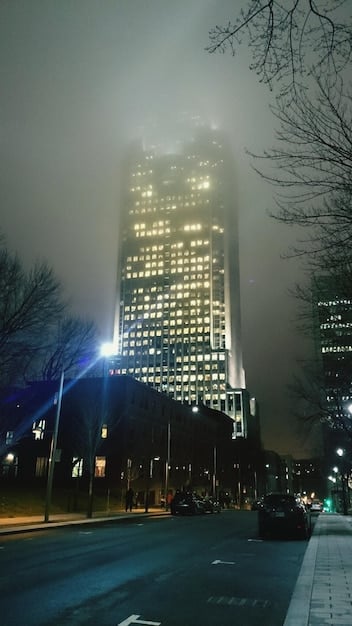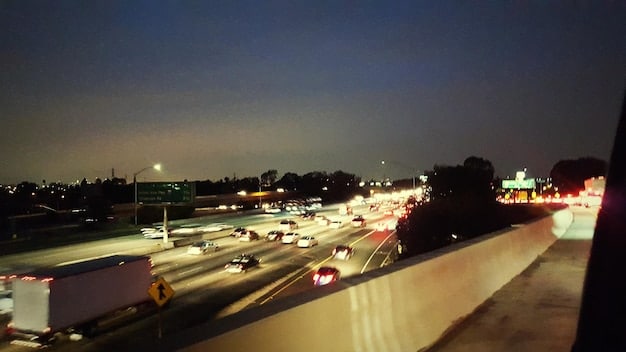Political Intrigue: How Politics Shapes International Crime Dramas

The Influence of Politics: How Political Issues Shape the Plots of International Crime Dramas is explored through the lens of international crime dramas, revealing how real-world conflicts and ideological struggles often provide rich material for complex narratives.
International crime dramas offer more than just suspenseful plots and intricate mysteries; they often mirror the political realities of the countries they portray. The Influence of Politics: How Political Issues Shape the Plots of International Crime Dramas is a compelling theme that adds depth and relevance to these shows.
The Symbiotic Relationship Between Politics and Crime Dramas
Political issues profoundly impact the narratives of international crime dramas. These shows frequently draw inspiration from real-world political events, conflicts, and ideological struggles, using them as a backdrop or even a central element in their storylines.
This connection isn’t coincidental; it reflects the inherent link between power, corruption, and criminal activity. Let’s delve into how political issues are woven into the fabric of these gripping series.
Political Corruption as a Plot Driver
Many international crime dramas use political corruption as a central theme. Characters often navigate a complex web of deceit, bribery, and abuse of power, mirroring real-world scandals and controversies.
Examples of such dramas highlighting political corruption include:
- Narcos (Colombia): Explores the drug trade’s deep ties to Colombian politics and the corruption it breeds.
- The Bridge (Denmark/Sweden): Investigates crimes that cross borders and expose political conspiracies in both countries.
- Line of Duty (UK): Focuses on police corruption and the political pressures that influence investigations.
These dramas often reflect the real corruption happening in these countries, making the shows more compelling and realistic.

Ideological Conflicts Steering Criminal Plots
Ideological conflicts, whether based on religion, nationalism, or political philosophy, frequently fuel the plots of international crime dramas. These conflicts often lead to politically motivated crimes, adding layers of complexity to the investigations.
Let’s explore how ideological conflicts become center stage in some shows:
- Fauda (Israel): Deals with the Israeli-Palestinian conflict and the ideological divides that drive the actions of both sides.
- Gomorrah (Italy): Showcases the operations of the Camorra, a Neapolitan mafia organization, and its ideological adherence to power and control.
- Occupied (Norway): Explores geopolitical tensions and the ideological clash between Russia and the European Union.
These ideological clashes create narratives rich in tension and moral ambiguity.
Geopolitical Tensions Influencing Narrative
Geopolitical tensions often serve as the perfect backdrop for international crime dramas. These tensions, whether related to territorial disputes, resource control, or international relations, provide a fertile ground for suspenseful and complex storylines.
Geopolitical tensions create unique story elements:
Resource Control and Crime
Dramas set in regions with valuable natural resources often highlight the criminal activities associated with controlling these resources. This can include illegal mining, smuggling, and corruption, as seen in dramas set in Africa and South America.
Territorial Disputes and Border Crimes
Shows set in regions with ongoing territorial disputes often feature crimes that exploit these divisions. Smuggling, human trafficking, and cross-border conflicts become common themes.
Espionage and International Relations
Many international crime dramas delve into the world of espionage, exploring the complex web of relationships between different countries and intelligence agencies.

How Political Scandals Inspire Crime Narratives
Political scandals are a goldmine for crime drama writers. Real-life political scandals, with their inherent intrigue and betrayal, often provide the inspiration for compelling plot twists and character motivations.
Political scandals can be adapted into the shows by:
- Adapting Real Events: Some dramas directly adapt real-life political scandals, changing names and details to protect identities while maintaining the core narrative.
- Fictionalizing Scandals: Other shows create fictional scandals that mirror real-world events, allowing for greater creative freedom while still tapping into the public’s interest.
- Using Scandal as a Backstory: Political scandals can be used as a backstory to develop characters and create conflicts, adding depth and complexity to the overall plot.
Political scandals can add layers of drama, and tension to these shows.
The Impact of Authoritarian Regimes on Crime Plots
Authoritarian regimes significantly shape the crime landscape in the countries they control. International crime dramas that portray these regimes often highlight the methods used to suppress dissent, control information, and maintain power.
Factors that show Authoritarian Regimes on crime plots:
Suppression of Dissent
Shows might feature journalists, activists, or ordinary citizens who are targeted by the regime for speaking out against corruption or injustice. These characters often find themselves entangled in criminal investigations designed to silence them.
Control of Information
Authoritarian regimes often control the flow of information to maintain their grip on power. Dramas might explore how this control affects crime investigations, with authorities manipulating evidence or suppressing reports to protect themselves.
Abuse of Power
Authoritarian regimes are often characterized by the abuse of power, with officials using their positions for personal gain or to settle scores with their opponents. This can lead to complex criminal conspiracies that are difficult to unravel.
The Role of Political Propaganda
Political propaganda plays a crucial role in shaping public opinion and justifying government actions. International crime dramas often explore how propaganda is used to manipulate the truth, create scapegoats, and maintain control.
These shows typically highlights how:
Creating Scapegoats
Propaganda is often used to create scapegoats, blaming certain groups or individuals for society’s problems. Crime dramas might feature characters who are falsely accused of crimes as part of a propaganda campaign.
Distorting Reality
Propaganda can distort reality, presenting a biased or incomplete picture of events. Crime dramas might explore how this distortion affects crime investigations, with authorities manipulating evidence or suppressing reports to protect the government’s image.
Maintaining Control
Propaganda is used to maintain control, creating a climate of fear and suppressing dissent. Crime dramas might feature characters who are targeted for challenging the government’s narrative.
| Key Aspect | Brief Description |
|---|---|
| 🌍 Geopolitical Influence | Tensions among countries often create crime drama plots. |
| 💼 Political Corruption | Abuse of power by politicians drives many crime storylines. |
| 🎭 Ideological Conflicts | Divisions based on beliefs create intense crime scenarios. |
| 📢 Political Propaganda | Manipulation of info affects plot twists. |
FAQ
▼
Political issues add depth and realism to international crime dramas by mirroring real-world events and conflicts. This makes the storylines more relatable and engaging for viewers, offering insights into cultural and social issues.
▼
Yes, political corruption is a common theme. It often drives the plot forward, creating intricate webs of deceit and power struggles that characters must navigate. It adds layers of complexity and intrigue to the narrative.
▼
Ideological conflicts often fuel politically motivated crimes. They add layers of moral and ethical complexity to characters’ actions, making the investigations more nuanced and thought-provoking. These conflicts drive tension.
▼
Authoritarian regimes often lead to increased suppression, corruption, and abuse of power. Dramas portray this leading control, affecting crime landscape. This enables a more realistic and high stakes environment.
▼
Political scandals provide the basis for intrigue, betrayal, and power struggles, providing writers with compelling plotlines. The high stakes allow for suspenseful storytelling and a sense of realism that audiences appreciate.
Conclusion
In conclusion, the influence of politics: how political issues shape the plots of international crime dramas is evident in the depth and complexity of their storylines. From geopolitical tensions to political corruption and propaganda, these shows mirror and reflect the political realities of the world, offering viewers a gripping and insightful look into the intersection of crime and politics.





